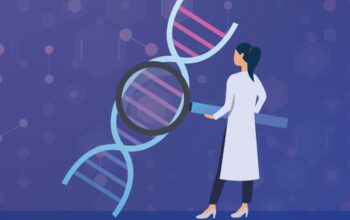According to the Centers for Disease Control and Prevention, approximately 6% of married women in the U.S. with an average age of 15 to 44 years old are unable to conceive within the first year of their pregnancy. To add, 12% of women from the same age group have a hard time getting pregnant regardless of how long they have been married.
While infertility is a serious problem, it is not one without a solution. In fact, if you go online and research about how to get pregnant easily, you will most probably be overwhelmed with the long list of the suggestions, many of which are backed by years of research.
Among others, to combat infertility, one of the most important aspects would be nutrition. You need a healthy diet and lifestyle. With this, keep on reading the rest of this short post as we walk you through some of the most important things that you have to know.
How Nutrition Affects Infertility
There is no denying – nutrition and fertility are two things that go hand-in-hand. In fact, in one research from the Harvard T.H. Chan School of Public Health and Harvard Medical School, the author found out that diet impacts fertility. They have recommended the vitamins and minerals that can positively impact fertility, which we will discuss later on.
More so, it should also be noted that those who are obese are at higher risk of being infertile compared to those who are healthy. Extra pounds in the body will affect the production of hormones that are responsible for the pregnancy of women. This will decrease the ovarian function. Meanwhile, being too thin can also make women infertile. This can be attributed to low levels of leptin.
When you do your research about getting pregnant, you will see lots of articles about fertility diets. When combined with physical activity and healthy weight, these diets can indeed be promising in increasing the chances of conceiving. The foods that you are eating can significantly lower ovulatory disorder. For those who are not getting enough of the needed nutrients from their food, taking conception fertility vitamins will also be helpful.
Dietary Changes to Combat Infertility
Now, let’s go to the most important part of this post and tackle some of the most important dietary changes that you might want to consider if you are trying to get pregnant.
Earlier, we mentioned a study from Harvard highlighting the need to have the vitamins and minerals that will impact fertility. With this, below are three of the nutrients that they found to have a positive impact on fertility:
- Folic Acid: One article from Daily Mail UK supports this assertion. Based on a study that involved about 18,000 women, folic acid proved to be effective in improving the fertility of women. It helps in improving egg production.
- Vitamin B12: The deficiency of Vitamin B12 in women does not only affect fertility, but it also increases the chances of fetal loss at any point during pregnancy. Lack of this vitamin can result in the disruption of normal cell division, abnormal ovulation, and impaired egg development, among other things that can contribute to infertility.
- Omega-3 Fatty Acids: It is believed that it is effective in the regulation of hormones, improvement of the uterus, and promotion of ovulation. These essential fats are instrumental in a healthier reproductive system amongst women.
What to Eat and What Not to Eat
To make you more enlightened on how to have a diet that promotes fertility, let us also discuss some of the specific foods that should be consumed. Among others, one of the most popular is the so-called Mediterranean diet. This is a diet that is rich in monosaturated fats, including oily fish, seeds, nuts, and plant oils. Whole grains, fruits, vegetables, and olive oil are also abundant in this diet. To add, it advocates moderate consumption of yogurt, eggs, poultry, wine, and cheese.
There are some specific foods that have received positive reception amongst women because of the belief that they can boost fertility. For instance, mature cheeses like parmesan and cheddar are known for being potent sources of polyamine, which will help in having a healthy reproductive system. Cow liver, meanwhile, provides Vitamin A, Vitamin B12, riboflavin, and folate, all of which are needed for pregnancy. Tomatoes, being naturally high in lycopene, are also recommended for women who are trying to conceive. You might also want to include lentils and beans in your daily diet for improved ovulation.
If possible, you should avoid juicing. This is because the digestive system needs warmth. Processed, junk, and high sugar foods should also be avoided. Alcohol and caffeine intake should also be kept at a minimum.
The most important thing to note is that there is no pregnancy superfood. Instead, you should aim for a healthy and well-balanced diet.
Don’t Forget Physical Activity
It is impossible to talk about fertility and nutrition without a mention of exercise. After all, it is not just all about what you eat. Physical activity is also critical in promoting a healthy lifestyle to increase the likelihood of being pregnant.
There is no single exercise that is proven to boost fertility. With this, variety is the key. Find different exercises that you enjoy doing so that you will always look forward to it instead of being too lazy.
The duration and intensity of the chosen exercise will also have an effect on fertility. As much as possible, avoid exercises that cause too much stress or heat to the body, such as Bikram yoga and running. Dedicated athletes and those who often engage in strenuous exercises may be at higher risk of infertility, so be sure to choose low-impact exercise routines.
Wrap Up
With the things that have been discussed above, it is apparent that nutrition is indeed one of the most important factors that can impact fertility. A healthy diet will increase your chances of conceiving, so consider altering your food intake!











